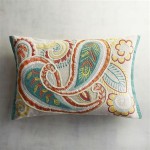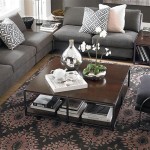What Does It Take To Be An Interior Decorator?
Interior decorating is a multifaceted profession that goes beyond simply choosing aesthetically pleasing furniture and paint colors. It involves a deep understanding of design principles, spatial awareness, color theory, and the ability to translate a client's vision into a functional and beautiful reality. A successful interior decorator possesses a unique blend of creativity, technical skills, and interpersonal abilities. The path to becoming a professional in this field requires dedication, continuous learning, and a commitment to staying abreast of current trends and technologies.
Unlike interior designers, who often focus on structural modifications and building codes, interior decorators primarily concentrate on the aesthetic aspects of a space. They work with existing structures to enhance the look and feel through furniture selection, wall coverings, lighting, accessories, and overall styling. This distinction does not diminish the skill and expertise required, as effective interior decorating significantly impacts the comfort, functionality, and overall well-being of those who inhabit the space.
Cultivating a Strong Foundation in Design Principles
A fundamental understanding of design principles is paramount for any aspiring interior decorator. These principles serve as the building blocks for creating harmonious and visually appealing spaces. Key principles include balance, proportion, harmony, emphasis, and rhythm. Balance refers to the distribution of visual weight within a space, ensuring that no single element overpowers the others. Proportion concerns the relationship between the sizes of different objects and elements within a room, striving for a sense of pleasing scale. Harmony involves creating a sense of unity and cohesion through the consistent use of colors, textures, and styles. Emphasis focuses on drawing attention to specific focal points within a room, using color, lighting, or unique objects to create visual interest. Rhythm refers to the repetition of visual elements, creating a sense of flow and movement throughout the space.
Beyond these core principles, a strong understanding of color theory is also crucial. Color has a profound impact on mood and perception, and a skilled decorator can leverage color palettes to evoke specific feelings and create a desired atmosphere. Understanding the color wheel, color harmonies (such as complementary, analogous, and triadic color schemes), and the psychological effects of different colors is essential for creating successful and impactful designs. Furthermore, knowledge of various architectural styles and periods allows decorators to create designs that are appropriate for the existing structure and reflect the client's personal preferences.
Developing this foundation often involves formal education, such as a degree or certificate in interior decorating or a related field. While formal education is not always mandatory, it provides a structured learning environment, exposes individuals to industry best practices, and allows for the development of a professional portfolio. Many institutions offer courses and programs that cover design principles, space planning, color theory, materials selection, and other essential skills. Workshops, online courses, and independent study can also supplement formal education and provide opportunities for continuous learning and skill development.
Developing Essential Technical and Practical Skills
While creativity and aesthetic sensibility are integral to interior decorating, practical and technical skills are equally important for bringing designs to life. These skills allow decorators to effectively communicate their vision, manage projects, and execute their designs flawlessly. Space planning is a crucial skill, involving the arrangement of furniture and other elements within a space to maximize functionality and create a comfortable and inviting atmosphere. This requires careful consideration of traffic flow, sightlines, and the intended use of the space.
Proficiency in drafting and rendering is also highly valuable. These skills enable decorators to create visual representations of their designs, allowing clients to visualize the final result and provide feedback. Traditionally, these skills were honed through manual drafting techniques, but modern technology has introduced a range of computer-aided design (CAD) and 3D modeling software that can significantly enhance the design process. Familiarity with software such as AutoCAD, SketchUp, and 3ds Max can enable decorators to create detailed and realistic renderings, improving communication and reducing the risk of misunderstandings. The ability to create mood boards, both physical and digital, is important to convey the overall design concept and selection of materials and finishes. These skills enable decorators to present ideas and gather feedback from clients in a visually compelling way.
Beyond design-specific skills, decorators must also possess strong project management and organizational abilities. Interior decorating projects often involve coordinating with various vendors, managing budgets, and adhering to timelines. Effective communication is crucial for coordinating with contractors, suppliers, and other professionals involved in the project. Strong organizational skills are essential for tracking orders, managing invoices, and keeping track of project details. Understanding basic construction principles and building codes can also be beneficial, allowing decorators to make informed decisions and avoid potential problems during the execution phase.
Nurturing Interpersonal and Business Acumen
Beyond the technical and creative aspects of interior decorating, strong interpersonal and business skills are essential for building a successful career. Interior decorating is fundamentally a client-facing profession, requiring decorators to effectively communicate with clients, understand their needs and preferences, and translate their vision into a tangible reality. Active listening, empathy, and the ability to build rapport are crucial for establishing trust and creating a positive client relationship. Clear and concise communication is essential for explaining design concepts, providing updates on project progress, and addressing any concerns that may arise.
The ability to present ideas persuasively is also highly valuable. Decorators must be able to articulate their design rationale, explain the benefits of their recommendations, and convince clients to embrace their vision. This requires strong presentation skills, including the ability to create compelling presentations, deliver engaging speeches, and answer questions confidently and effectively. Negotiation skills are also important, as decorators often need to negotiate prices with vendors, manage budgets effectively, and resolve any disputes that may arise during the project.
From a business perspective, understanding pricing strategies, marketing techniques, and contract negotiation is crucial. Interior decorators need to understand how to price their services competitively, market their business effectively, and protect their interests through well-written contracts. Building a strong professional network is also essential. Networking with other designers, architects, contractors, and suppliers can lead to new opportunities, collaborations, and valuable industry insights. Participating in industry events, joining professional organizations, and building online presence through a website and social media can all contribute to building a strong professional network.
Furthermore, the ability to adapt to changing trends and technologies is essential for long-term success. The field of interior decorating is constantly evolving, with new materials, technologies, and design styles emerging regularly. Successful decorators must remain committed to continuous learning, staying abreast of current trends, and adapting their skills to meet the changing needs of the market. This may involve attending industry conferences, reading design publications, taking online courses, or experimenting with new technologies and techniques.
In summation, becoming a successful interior decorator requires a comprehensive and diverse skill set. A strong foundation in design principles, essential technical and practical skills, and well-developed interpersonal and business acumen are all essential attributes. Through dedication, continuous learning, and commitment to client satisfaction, aspiring interior decorators can forge a fulfilling and rewarding career in this creative and dynamic field.

How To Become An Interior Decorator With S Wikihow Life

What Do Interior Designers And How To Become One

How To Become An Interior Decorator The Ultimate Guide Focal Point

How To Become An Interior Decorator The Ultimate Guide Focal Point

The Best Things About Being An Interior Decorator Eastern College

Interior Decorator Certificate Course

Interior Designer Vs Decorator Springhouse Architects
How To Become An Interior Designer Markel Direct

Loving The Look Best Things About Being An Interior Decorator Eastern College

Interior Decorator Vs Designer What S The Difference
See Also








